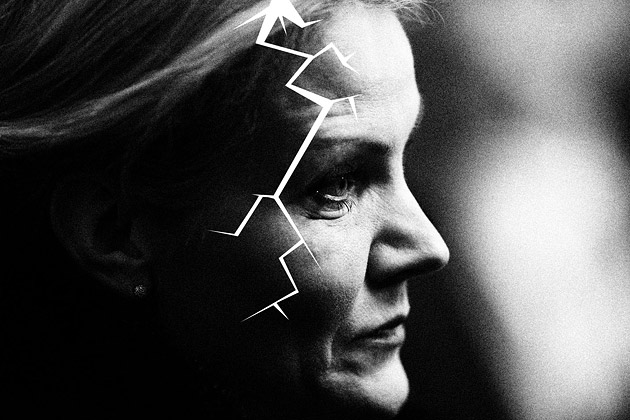A Deal Divides Denmark
< < Go Back
 When Danish Prime Minister Helle Thorning-Schmidt supported the sale of shares in a state-owned company to Goldman Sachs (GS), she couldn’t have known how costly the deal would turn out to be. On Jan. 30, as a parliamentary committee gave final approval for the bank’s purchase of 18 percent of Dong Energy, the nation’s largest electric utility, for $1.5 billion, the Socialist People’s Party quit the governing coalition in protest, leading six cabinet ministers to resign. While Thorning-Schmidt, a Social Democrat, retains her post with the support of the Social Liberal Party, polls show the dispute has dented her popularity, adding to the challenges she faces, including a weak economy, ahead of next year’s national elections.
When Danish Prime Minister Helle Thorning-Schmidt supported the sale of shares in a state-owned company to Goldman Sachs (GS), she couldn’t have known how costly the deal would turn out to be. On Jan. 30, as a parliamentary committee gave final approval for the bank’s purchase of 18 percent of Dong Energy, the nation’s largest electric utility, for $1.5 billion, the Socialist People’s Party quit the governing coalition in protest, leading six cabinet ministers to resign. While Thorning-Schmidt, a Social Democrat, retains her post with the support of the Social Liberal Party, polls show the dispute has dented her popularity, adding to the challenges she faces, including a weak economy, ahead of next year’s national elections.
The role of Goldman in the deal struck a nerve with the Danish public, which is still suffering from the aftereffects of the global financial crisis. When protesters gathered in front of Parliament in Copenhagen on Jan. 29, a yellow banner with a drawing of a vampire squid—the description of Goldman used by Matt Taibbi in Rolling Stone in 2009—was draped around the base of a statue of King Frederick VII. “I’m very disappointed” that a left-wing government backed the sale, said one protester, Solveig Weiss, who identified himself as a retiree who votes for the Social Liberal party. “It’s completely right-wing policies and certainly doesn’t help that they’re selling shares to a somewhat dodgy enterprise.”
The bank has said it views the stake as a long-term holding and will support the strategy of current management, and that the political and popular backlash won’t prompt it to reassess its bid. As for where it holds its shares, “Goldman Sachs complies, and will continue to comply, with all applicable tax laws in Denmark, Luxembourg, the United States, and other relevant jurisdictions,” wrote Sophie Ramsay, a bank spokeswoman based in London, in an e-mail.
People are punishing Thorning-Schmidt for dealing with a bank they think represents “everything Danes really don’t like about the crisis,” says Peter Kurrild-Klitgaard, a professor of political science at the University of Copenhagen. They also don’t like that the buyer “is not Danish or even European.” Some of that may be an overreaction, he adds: “Most Danes don’t know the details of this deal. Many think Denmark is selling all of Dong and not just 18 percent.”
More From Bloomberg Businessweek:



